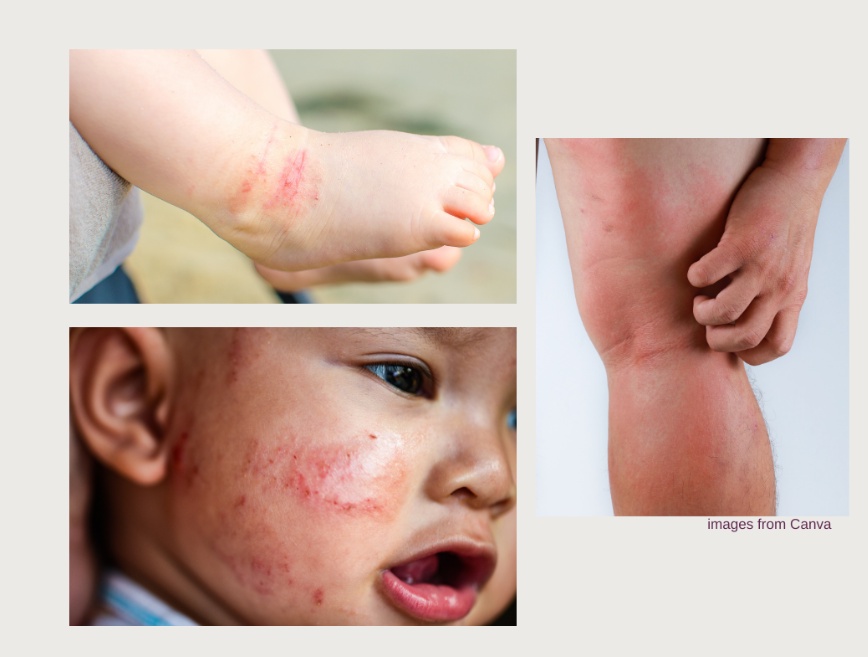Eczema, also known as Atopic Dermatitis, is a skin condition that affects many children. It can be distressing for both the child and their parents. In this article, we'll delve into the triggers, root causes, symptoms, treatment options, and the best eczema creams for children dealing with eczema.
What triggers eczema (Atopic Dermatitis) in children?
Eczema is often triggered by various factors, and understanding these triggers is essential in managing the condition effectively. Common triggers include:
- Genetics: Family history plays a significant role in a child's likelihood of developing eczema. If a parent or sibling has eczema or other allergic conditions, the risk increases.
- Allergens: Exposure to allergens like pollen, pet dander, dust mites, or certain foods can lead to eczema flare-ups.
- Irritants: Everyday irritants such as soaps, detergents, and certain fabrics can aggravate eczema symptoms.
- Climate and Weather: Extreme temperatures, humidity, or sudden weather changes can trigger eczema outbreaks.
What is the root cause of eczema (Atopic Dermatitis)?
The exact root cause of eczema remains a subject of ongoing research. However, it is widely believed to result from a combination of genetic and environmental factors. Children with eczema often have a compromised skin barrier, making it more susceptible to irritation and allergens.
What are 3 symptoms of eczema (Atopic Dermatitis)?
Recognizing the symptoms of eczema is crucial for early intervention. The most common symptoms include:
- Itchy Skin: Eczema often presents with intense itching, which can be especially distressing for children.
- Redness and Inflammation: Affected areas may become red and inflamed, making the skin appear irritated.
- Dry, Flaky Skin: Eczema can cause the skin to become dry and flaky, with patches that may crack or bleed.
How do you treat eczema (Atopic Dermatitis) in children?
Treating eczema in children requires a holistic approach. Here are some steps you can take:
Emollients: Applying emollients and moisturizers can help keep the skin hydrated and prevent dryness.
Topical Steroids: In more severe cases, doctors may prescribe topical steroids to reduce inflammation.
Antihistamines: These can help alleviate itching and discomfort.
Avoid Triggers: Identifying and avoiding triggers is crucial in managing eczema effectively.
Choosing the best cream for children's eczema (Atopic Dermatitis)?
While eczema may lack a permanent cure, there exists a multitude of approaches for alleviating flare-ups and safeguarding children from irritation. These include:
Employing lukewarm baths to provide relief, avoiding hot water, which can exacerbate discomfort.
Opting for clothing crafted from gentle, non-irritating fabrics like cotton to minimize skin aggravation.
Prioritizing frequent moisturizing with hypoallergenic, fragrance-free products to preserve skin hydration.
Embracing the practice of air drying or gently patting the skin with a soft towel post-bath, steering clear of abrasive rubbing.
Installing a humidifier in cold or arid environments to maintain optimal skin moisture.
Maintaining short, well-clipped fingernails to discourage unintended skin scratching or damage.
Eczema, by compromising the skin's natural protective capabilities, heightens susceptibility to harsh or irritating substances that can lead to dryness and inflammation.
A pivotal facet of treating eczema in children irrespective of age is the utilization of a mild, non-soap shampoo and body wash specially formulated for eczema-prone skin. We recommend considering Dr. Eddie's Happy Cappy is the best shampoo for eczema babies.
It is available for purchase on popular platforms like happycappyshampoo.com, Amazon, Walmart.com, and Walgreens.com. This product is designed to effectively cleanse the skin without triggering any irritation, ensuring that your child's skin remains both healthy and comfortable.
Conclusion:
Eczema in children is a complex condition influenced by genetics, environmental factors, and individual triggers. Recognizing the symptoms and understanding the root causes is essential for effective management. With the right treatment and suitable creams, you can help your child find relief from eczema and enjoy healthier, happier skin.


No comments yet